The Vice President of India, M Venkaiah Naidu has said that environmentally friendly aquaculture can serve as a vehicle for rural development, food and nutritional security for the rural masses, considering the substantial contribution aquaculture makes towards socio-economic development in terms of income and employment.
Naidu was inaugurating the 5th Aqua Aquaria India 2019, India’s International Aquaculture Show, organized by the Marine Products Export Development Authority (MPEDA), in Hyderabad today.

“Sustainability and conservation must be the twin pillars on which we build our fisheries sector,” the Vice President said. (Tweeted by @VPSecretariat)
Highlighting the government’s resolve to double farmers’ income by 2022, the Vice President underscored the necessity of ensuring that the economic benefits from fisheries reach the primary producers, the fishermen and fish farmers. “We must reduce the role of middlemen, provide crop insurances, enhance access to credit, develop cold chains and good upcountry market linkages, provide infrastructure for post-harvest storage, handling and value addition,” he added.
Cautioning that reckless exploitation of limited resources, especially endangered marine species must be strictly prevented, the Vice President stressed that the promotion, regulation and monitoring of responsible fishing practices, through robust fisheries management and governance frameworks are essential for the sustainability of fisheries resources in both coastal areas and high seas.
The Vice President said that the burning concerns of marine and fresh water pollution caused by discarded plastics and harmful chemicals must be addressed on priority basis. Referring to the looming threats of global warming and climate change, he called for a coordinated response to tackle these issues. “Sustainability and conservation must be the twin pillars on which we build our fisheries sector,” he exhorted.
Speaking of India’s enormous potential in the fisheries sector, the Vice President stated that India is the second largest fish producer in the world with a production of 13.70 million metric tons of fish during 2018–19.
Reasoning that the rising world population is putting further pressure on the available food resources, the Vice President said that there was an urgent need to boost fish production to ensure food security to our billion-strong population.
Referring to the slogan given by the former Prime Minister, Atal Behari Vajpayee, ‘Jai Jawan, Jai Kisan and Jai Vigyan,’ Naidu said that we must salute the soldiers for guarding our borders, we must salute the farmer for producing food for us and we must salute the Scientists for making India scientifically advanced.
Endorsing the call given by the Prime Minister, Narendra Modi for Fit India, the Vice President said that it is the need of the hour and has to become a national movement. Intake of food rich in proteins, such as fish, is crucial for good health, he added.
Naidu said that with a long coastline of over 8,000 km and exploitable fisheries resources of 3.9 million metric tons, India is blessed with vast aquatic resources with a rich diversity of fish fauna for sustainable utilization. He added that India’s vast and diverse aquatic resources offered an excellent opportunity for expansion of aquaculture.
The Vice President also pointed out that globally, aquaculture is being looked upon as the best alternative to boost fish production, as the production from the traditional and marine fisheries have been stagnating.
Expressing concern that India exploits only a fraction of the aquaculture potential that is available to it, he said that there is room for both horizontal and vertical expansion in the fisheries sector. He also spoke about the immense potential India has in the field of mariculture.
Referring to the need for diversifying aquaculture, Naidu said that cage culture in floating or fixed cages and pen culture would help us meet this objective. The Vice President suggested that our future outlook must focus not on increasing our fishing efforts in the seas, but on judicious use of the declining fishery resources by reducing losses and focusing on value addition.
Stating that fisheries and aquaculture are multidisciplinary subjects where scientists and technologists have to work as teams, Naidu said that initiatives like Aqua Aquaria must not only serve as platforms for sharing knowledge and information on new technologies but also strive to take this knowledge to the common people, fish farmers and primary producers.
Referring to the role played by modern technology in enhancing production and productivity, the Vice President said that greater R&D support with strong linkages between research and development agencies was the need of the hour.
He congratulated MPEDA for organizing the 3-day exposition and expressed hope that such events would help giving a renewed impetus to the sector by infusing new ideas and advanced technology.
The Vice President inaugurated the MPEDA-RGCA Exhibition and the Business to Business Exhibition and went around the same.
The Minister for Animal Husbandry, Fisheries and Marketing, Andhra Pradesh, Mopidevi Venkata Ramana Rao; the Minister for Animal Husbandry and Fisheries, Telangana, T Srinivasa Yadav; the Chairman, MPEDA, KS Srinivas and other dignitaries were present on the occasion.


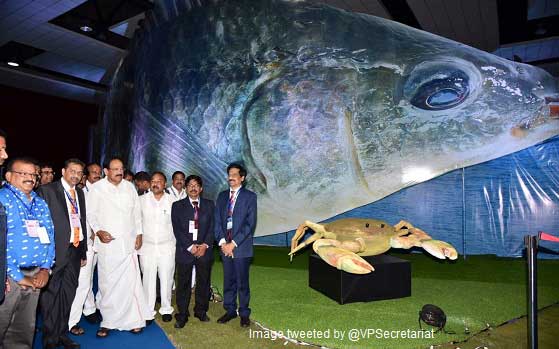
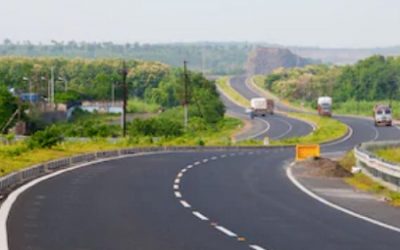

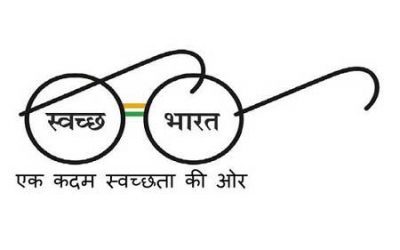

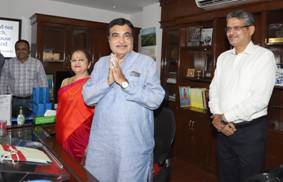


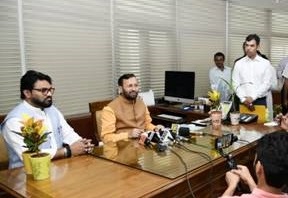

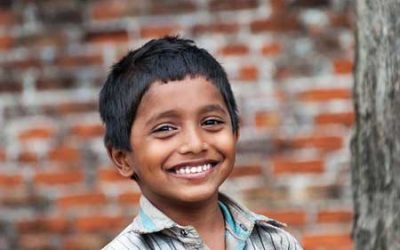

0 Comments